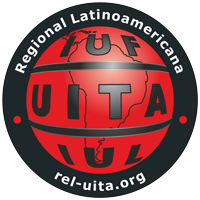
Amidst the chaos that prevails at the highest levels of government, there are still state institutions that raise their voices to defend the country’s workers. One of these is the Labor Prosecutor’s Office (Ministério Público do Trabalho, or MPT) and its regional branches.
In southern and southwestern Brazil, where the bulk of the meatpacking industry is located, the number of COVID-19 cases grows at a dizzying rate, among other reasons, due to companies such as the multinational group JBS refusing to comply with even the minimum guidelines and protocols established to prevent the virus from spreading, thus turning their meatpacking plants into major pandemic hotspots.
We talked about this with Labor Prosecutor Anderson Corrêa da Silva, MPT representative in the midwestern region of the state of Santa Catarina.
-What is the situation of meatpacking workers in your region?
-I cover the midwestern region of the state, where two large meatpacking plants operate, one belongs to BRF and is located in the municipality of Concordia, and the other, owned by Seara Alimentos, a subsidiary of JBS, is in Ipumirim.
In these two plants the problem is aggravated because there are several cases of workers who have contracted COVID-19.
We have received reports from various sources. The main source was the state’s Health Department, which set off the alarm after finding out that several workers had tested positive.
Some unions in the sector also reported these companies’ failure to comply, prompting both the Labor Department and the MPT to act.
-What exactly is the MPT’s role in these cases?
-The Labor Prosecutor’s Office conducts an inspection and if irregularities are found, it orders the companies to correct them.
An agreement was reached with the BRF Group—what we call Terms of Adjustment of Conduct (TAC)—which applies nationwide and pursuant to which the company undertakes to adopt all the necessary measures to stop COVID-19 from spreading in its meatpacking plants across the country.
In other words, it promises to comply with the guidelines that establish a proper distance between workers in the production lines and other plant areas, as well as to implement effective epidemiological control measures, including COVID-19 testing, and immediate removal of anyone in the risk group and all confirmed or suspected cases of contagion.
-Does this agreement apply to both companies?
-Sadly, no. The JBS Group refused to negotiate with us and to comply with the health protocols, so we had to bring a Public Civil Action against it on May 23, in order to ensure the application of the health safety standards to address the COVID-19 outbreak among its workers.
Prior to that, on May 18, the Labor Inspection Department—now connected with the Ministry of the Economy, since the Ministry of Labor was eliminated by the government of Jair Bolsonaro—had detected irregularities in the actions taken to protect the health of the workers and the lack of effective measures for epidemiologic control.
Some of the cases identified by the inspectors are extremely serious, such as the failure to establish proper distances between work stations, workers with symptoms still on the production line, and the blatant case of an operator who tested positive for COVID-19 and was not taken off the job. And the company is aware of all of this.
Given this situation, the inspectors decided to close down the Ipumirim plant in western Santa Catarina.
Despite this decision, the civil action was necessary because the JBS Group did not sign an agreement with the MPT undertaking to implement control and contention measures for the pandemic.
With this action we hope that the courts will force the company to comply with the health protocols for prevention and control once the plant is reopened.
